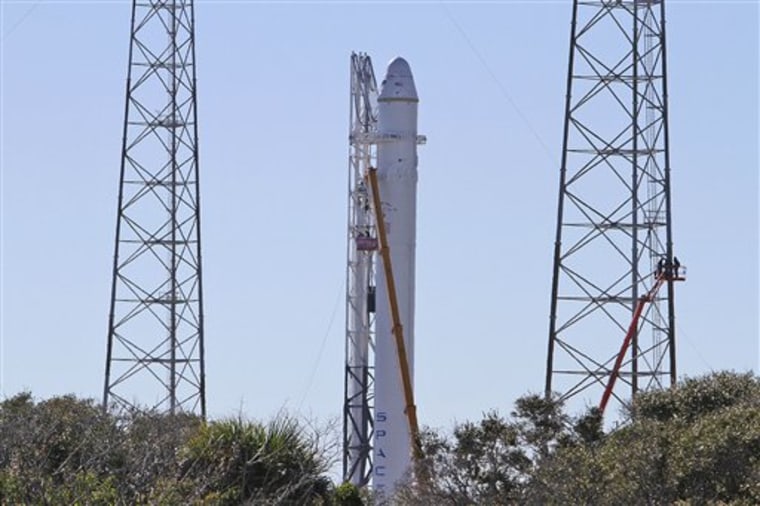The private spaceflight company SpaceX is poised to launch its rocket and new commercial space capsule on its inaugural test flight tomorrow (Dec. 8), following a 24-hour delay due to cracks on one of the rocket engine's nozzles, NASA officials confirmed.
The company's Falcon 9 rocket and Dragon space capsule are set to lift off from the Cape Canaveral Air Force Station's Launch Complex 40 here in Florida tomorrow morning. The launch window will open at 9 a.m. EST (1400 GMT) and close at 12:22 p.m. EST (1722 GMT).
The test flight of SpaceX's Dragon spacecraft was originally planned for Dec. 7, but the launch was delayed after two cracks were detected in the aft end of the second-stage engine nozzle extension of the Falcon 9 rocket. [INFOGRAPHIC: Inside Look at SpaceX's Dragon Capsule]
SpaceX engineers worked overnight to resolve the nozzle issue, and the decision to launch Wednesday was announced Tuesday evening.
The Hawthorne, Calif.-based SpaceX, short for Space Exploration Technologies, was founded by millionaire Elon Musk, co-founder of the PayPal online payment system and CEO of the Tesla electric car company.
For tomorrow's demonstration flight, the Falcon 9 rocket will carry the Dragon space capsule into low-Earth orbit. The capsule will then separate from the rocket's second stage and make multiple orbits of the Earth, demonstrating its operational communications, navigation and maneuvering abilities.
The spaceship will then re-enter the Earth's atmosphere and land in the Pacific Ocean a few hours later. The full duration of the test flight is expected to last approximately four hours, SpaceX officials have said.
If successful, SpaceX will be the first commercial company to launch and re-enter a spacecraft from low-Earth orbit. The mission is also SpaceX's second launch of its two-stage Falcon rocket. The first Falcon 9 booster launched on a successful test flight in June.
The test flight will also be the first by any company under NASA's Commercial Orbital Transportation Services (COTS) program, which is designed to stimulate the development of private vehicles capable of carrying cargo and crew to the International Space Station.
SpaceX has a $1.6 billion contract with NASA to use its Dragon spacecraft for cargo flights to the International Space Station following the retirement of the agency's space shuttle fleet. SpaceX plans to fly at least 12 unmanned missions to deliver supplies to the space station with its Falcon 9 rocket and Dragon capsule.
SpaceX also hopes to win a contract to one day ferry astronauts to the station though the Dragon capsule is not yet certified to carry human passengers into space.
